
Carbon Cycle Diagram Quizlet
THE CARBON CYCLE _1_ Root respiration _2_ Organic Carbon _3_ Sunlight _4_ Auto and factory emissions _5_ Animal respiration _6_ Decay organisms _7_ Ocean Uptake _8_ Plant respiration _9_ Fossils and fossil fuels _10_ Organic Carbon _11_ Photosynthesis Image from: http://www.windows2universe.org/earth/climate/images/carboncycle_sm.jpg

Carbon Cycle Diagram Quizlet
The carbon cycle shows how carbon moves through all four spheres of Earth. Sketch some of the interactions that connect the movement of carbon through the spheres. Describe and/or label the
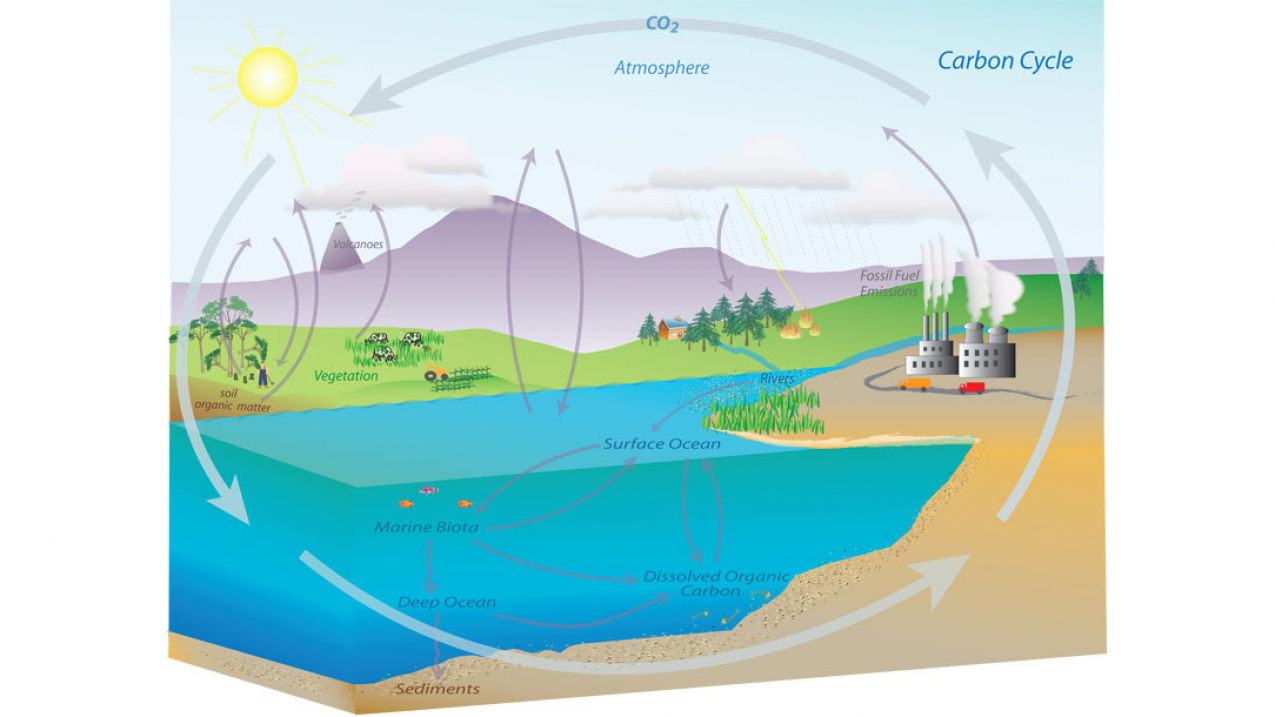
Carbon cycle National Oceanic and Atmospheric Administration
Carbon moves from the atmosphere to the oceans. The oceans, and other bodies of water, soak up some carbon from the atmosphere. Animals that live in the ocean use the carbon to build their skeletons and shells. Carbon dioxide is a greenhouse gas and traps heat in the atmosphere. Without it and other greenhouse gases, Earth would be a frozen world.

The Carbon Cycle Diagram Quizlet
1.3 The carbon cycle 2.5-3 How carbon atoms move between organisms and the air Learner s Book: Questions 1 4 Think like a scientist: How do plants and animals affect carbon dioxide concentration? Activity: Modelling the carbon cycle Workbook: Exercise 1.3, Completing a carbon cycle diagram Teacher s Resource: Worksheets 1.3A C, Building a.

The Carbon Cycle and Climate Change NSTA
Figure 1. Diagram of the carbon cycle. copyright Summary Students are introduced to the concept of energy cycles by learning about the carbon cycle. They learn how carbon atoms travel through the geological (ancient) carbon cycle and the biological/physical carbon cycle.

4x Carbon and Nitrogen Cycle 2x Powerpoint PPTs and 2x Worksheets (KS3/KS4) Teaching Resources
Overview Youth will take on the role of a carbon atom and record which reservoirs in the carbon cycle they visit. They will compare and contrast their trip with those of the group to discover information about sources and sinks and residence times of the different reservoirs. Rationale
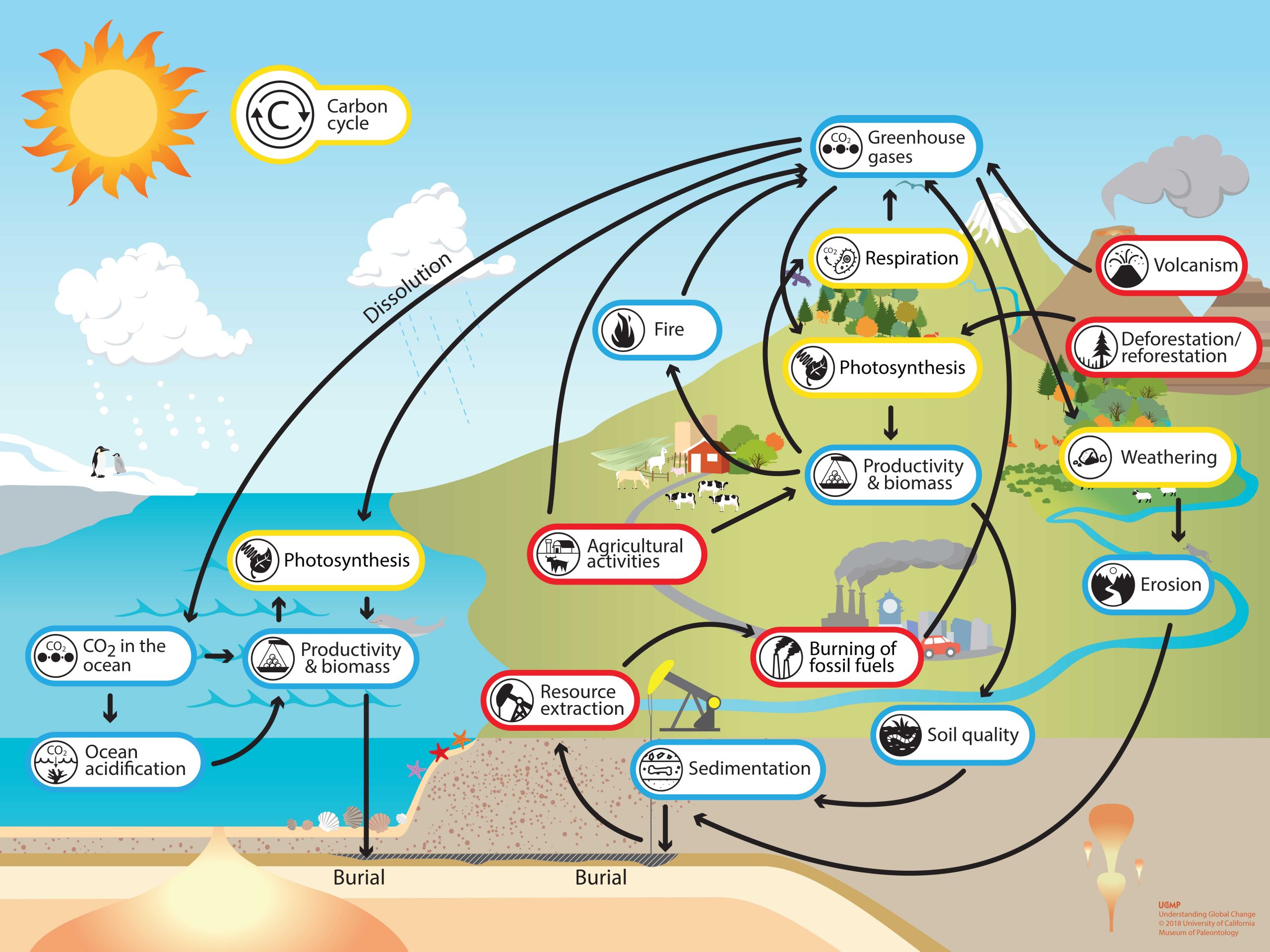
Carbon cycle Understanding Global Change
The carbon cycle The carbon cycle Creativity break: how do you get into your creative zone? Understand: the carbon cycle Science > High school biology - NGSS > Matter and energy in ecosystems > The carbon cycle Understand: the carbon cycle Google Classroom The following diagram shows the carbon cycle.

The Carbon Cycle Teaching Resources
The carbon cycle is a visualisation of the processes that move and store carbon between living and non-living things. In this activity, students use the interactive carbon cycle diagram to explore the global carbon cycle and to answer questions in an online or paper-based quiz. The quiz combines scientific literacy with reading literacy and.
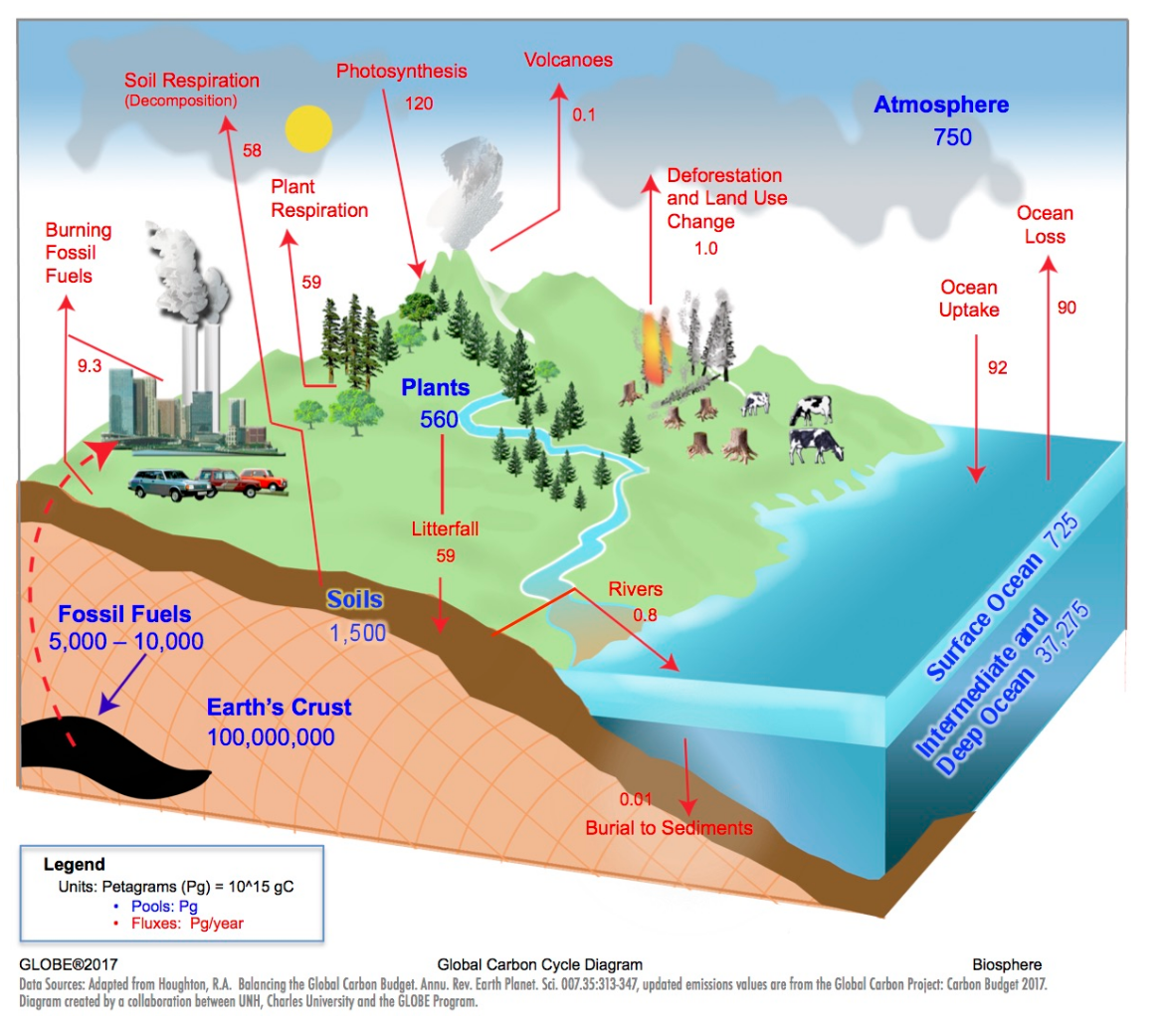
Carbon Cycle GLOBE.gov
Photosynthesis and the carbon cycle 1.3 The carbon cycle Exercise 1 In this exercise, you will practise turning statements into questions. Change each statement into at least one question. Write more than one question if you can, but try not to ask anything that cannot be answered by reading the statement. The rst one has been done for you.

Quiz & Worksheet The Carbon Cycle
Unit 2 assessment: graphic representation of the carbon cycle (Acrobat (PDF) 74kB Jun3 14) 7. Summative assessment (in-class quiz): The summative assessment for this unit, which can also function as a "pre-test" or a part of a larger, whole-module exam, is a quiz covering key aspects of the carbon cycle.

Carbon Cycle Worksheet (KS3 / KS4) Teaching Resources
The science in this activity covers the carbon cycle, reservoirs, climate change, climate feedback loops, and human impacts/mitigation. Students use the following datasets in this activity: Lesson 1 uses the amounts of (flux and non-flux) carbon from climate.gov and energy.gov; Lesson 2 uses NOAA atmospheric carbon concentrations from sites across the US, as well as sea-level rise projected.

Quiz & Worksheet Water & the Carbon Cycle
How is carbon cycled student worksheet Handout | PDF, Size 0.17 mb How is carbon cycled student worksheet Editable handout | Word, Size 0.13 mb How is carbon cycled teacher notes Handout | PDF, Size 0.15 mb How is carbon cycled teacher notes Editable handout | Word, Size 0.42 mb Bookmark No comments yet Sign in Register More from Resources
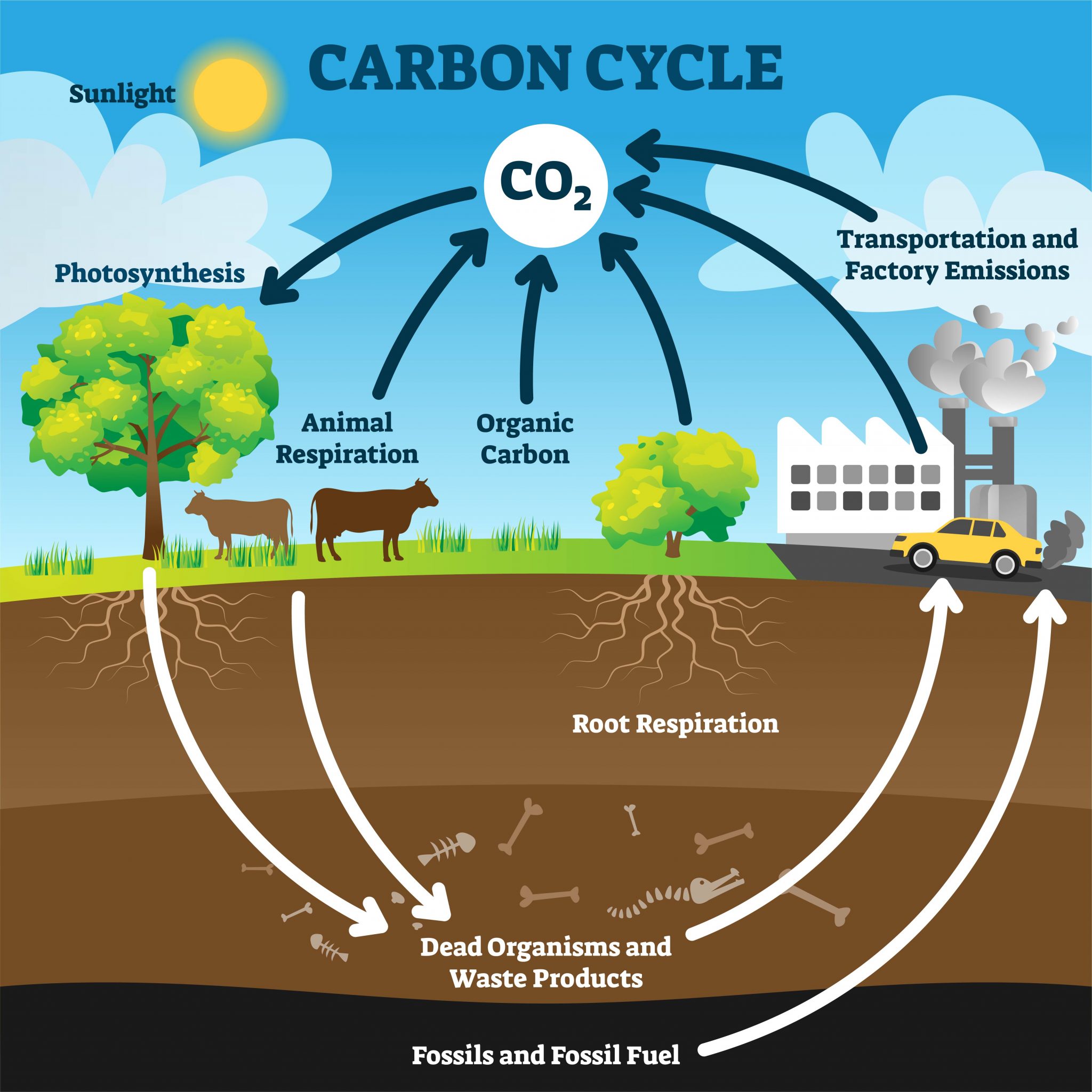
Systems Thinking and the Carbon Cycle An Interactive Introduction to Organismal and Molecular
Students are first introduced to the carbon cycle in an interactive game that triggers prior knowledge and touches on how carbon moves through Earth's interconnected spheres. Students then investigate and gather evidence of the carbon transformation that carbon atoms encounter throughout the cycle.

The Carbon Cycle UCAR Center for Science Education
Deforestation. When we cut down trees and forests, they can no longer remove carbon dioxide from the air. This results in additional carbon dioxide placed in the atmosphere. Wood burning. When we burn wood, the carbon stored in the trees becomes carbon dioxide and enters the atmosphere. Combustion of fossil fuels.
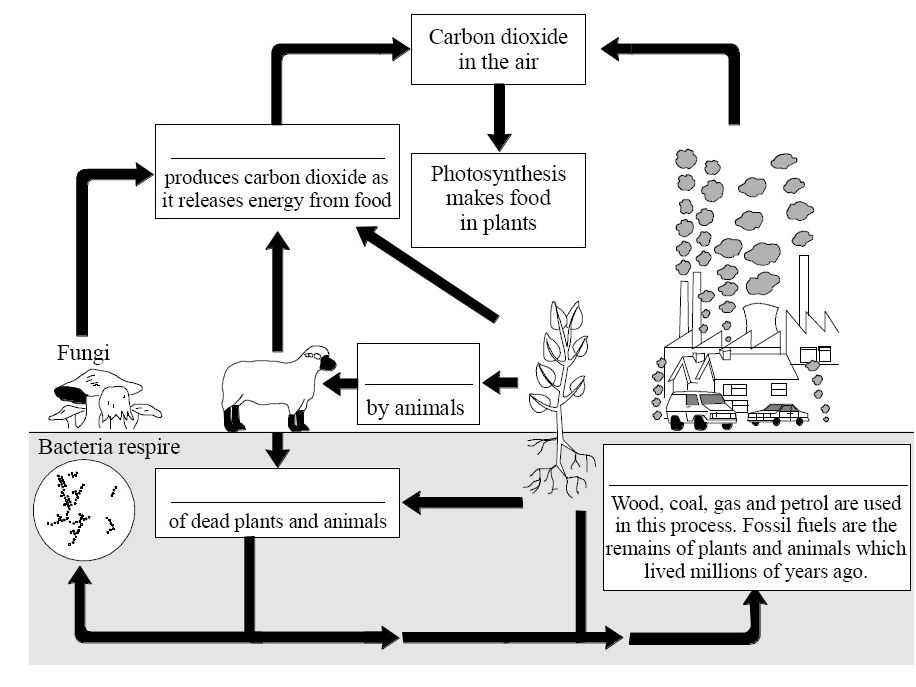
Carbon Cycle question sheets Teaching Resources
Carbon cycle passport worksheet Royal Society of Chemistry Page 2 of 2 Registered charity number 207890 ; Main activity 2 Producing a carbon cycle diagram From their travels around the stations, students should produce a carbon cycle diagram which shows the different stations they travelled to and which processes took them there. This could be.

The Carbon Cycle Worksheet Printable and Distance Learning Teaching Resources
QUESTIONS: The Cycle Processes that put carbon into the air are called sources. Human respiration puts it back into the atmosphere when we exhale CO 2. Carbon also returns to the environment through the process of the decay of plants and animals. What Is Carbon? It forms a major part of rock formations like limestone and marble.